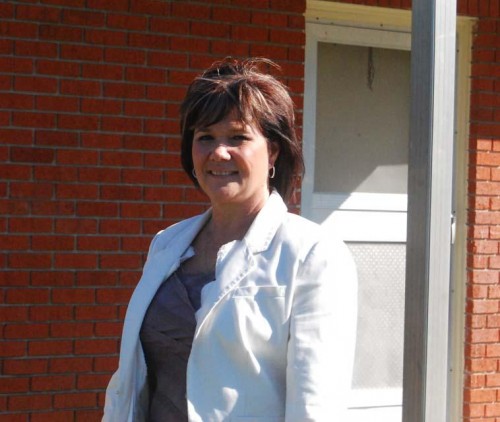Robert Michael Reulet
December 9, 2011
Louisiana’s seniors increase in numbers and employment
December 13, 2011Two public agencies in Lafourche are planning construction for more than a dozen affordable rental-housing units for low- to moderate-income families, the parish’s largest public-housing construction project in 27 years.
The Lafourche Housing Authority and Lafourche Arc are sharing $2.7 million in state-issued Community Development Block Grant (hurricanes Gustav and Ike disaster recovery) funding that was administered through Lafourche Parish Government. LHA will receive $1.7 million, and LARC will get about $1 million.
“After a disaster like Gustav and Ike, or Katrina and Rita, housing is seriously affected,” said Gretchen Caillouet, LPG’s director of grants and economic development. “In addition to the infrastructure, I think the federal government recognizes that’s the other strongest need, housing. If you can’t get people sufficient housing, then how do you rebuild your community?”
LHA’s goal is to build 10 units along a stretch of self-owned property between Greenville and St. Patrick streets in Raceland. The units would include all appliances, a covered carport and central air and heating, said Beryl Pitre, the agency’s executive director.
Before the housing authority can commence its build, it must first subdivide the property into 16 lots, raise the elevation of its property and ensure adequate infrastructure is in place. The units will be raised about 3 feet on pilings to reach a 6-foot elevation, Pitre said.
The housing authority, which is headquartered on the eastern edge of the property, self-manages a sewage plant and water and electrical lines for its other units in the area.
If the housing authority were to reach its goal of 10 homes, it could be more or less, Pitre said, the average cost of each unit would be $170,000. As a part of priming the land for construction, the housing authority must commission drainage and planning studies.
“None of this is cheap,” Pitre said. “All of these things are factored into the development. It’s like building a new neighborhood. It’s not just building that house on a lot that you own; it’s factoring in all of the things that go along with that.”
Weimer Gros Flores LLC will be the architectural firm in charge of the LHA project and will begin the six-month process of designing the LHA units once its contract is finalized.
The housing authority is creating a non-profit entity that will operate under its umbrella to own and manage the property. It will be called the Cottages of Lafourche, and its board of directors and administrative directorship will mirror the housing authority.
As per the grant’s guidelines, rental prices must be set at less than or equal to 80 percent of the area’s median income level, or $57,700. Pitre said the cost of living in the units hasn’t been set, but added that the units would likely be set different rent schedules.
Renters’ qualifying guidelines have also yet to be finalized. Pitre said it wouldn’t be as strict as public housing programs definitions that require extremely low income. This development, instead, would be tailored toward a slightly higher class.
“Where public housing programs and rental assistance programs that the Housing Authority manages are those for low and extremely low income, this will be open to citizens of Lafourche who might be right above that,” Pitre said.
The development will be the first Housing Authority construction project in 27 years, when 76 units in Thibodaux were added to the stock.
LHA currently manages 276 units, of which 200 are more than 40 years old, Pitre said. They housing authority historically used its capital fund to maintain the houses, and has “an excellent stock” at the moment, Pitre said, but the fund is drying up, with a cut of $90,000 expected to strike the now $395,000 fund budget for the second-straight year.
The housing authority also administers the Housing Choice Voucher Program, formerly Section 8, to 271 landlords to subsidize those who rent to low-income tenants.
Lafourche Arc, the grant’s other benefactor, has set a goal of building enough units to house eight individuals with developmental disabilities, according to Lester Adams, its executive director. Some of the to-be-built units will house more than one person.
It will be the first time the 48-year-old organization has added to its housing stock through construction.
Lafourche Arc supports about 400 people with mental retardation and developmental disabilities. It houses some individuals in owned and rented community homes, but its largest program is in-home livelihood support through a waiver program.
The agency will hire an outside company to manage the apartment complex. Adams said a prospective piece of property has been identified, but Lafourche Arc must go through the proper assessment channels before it can hire an architect to begin the design phase.
If the property is approved, the design work could begin at the first of the year, and the targeted groundbreaking is sometime next summer, Adams said.
The organization, which receives 95 percent of its funding through Medicaid, currently utilizes six community homes, three of which are self-owned, and some house as many as six people, Adams said. The planned construction would not impact the community homes’ service or its inhabitants, but it would instead focus on developmentally disabled individuals who currently live on their own or with their families.
Lafourche Arc will likely hire an outside agency to manage the rental properties because it lacks the “expertise” to do so itself. “Our expertise is in providing services, and it’s not in managing rental units,” Adams said. “We got into this because there’s such a desperate need; our people need quality housing to live in and you just don’t have it in the area.”
Adams said the agency has identified between 40 and 50 people who need the type of housing the proposed apartment will provide. With federal Housing and Urban Development grants for developmentally disabled people “few and far between” reducing the need by eight is “a big deal,” he added.
“They don’t come along very often, so we’re really pleased to be able to participate in this” the Lafourche Arc executive director said. “Our people have very low income and don’t have access to quality or even minimal housing.”
In total, the grant awarded $3 million. For the purposes of funding delivery and expenses, the remaining $285,000 will go to Hunt Guillot and Associates, who consults and prepares rule-abiding grant applications for all of the parish’s Gustav-Ike CDBG opportunities, Caillouet said.
Beryl Pitre, executive director of the Lafourche Housing Authority, stands in front of a vacant unit between Greenville and St. Patrick streets in Raceland. ERIC BESSON












